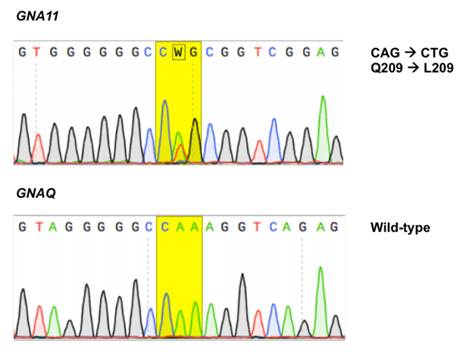“圣诞浆果”提取物有助于治疗恶性癌症
来源:《分子癌症研究》
作者:Dominic Lapadula等
时间:2019-01-28

每年大约有2000名葡萄膜黑色素瘤(眼癌)的成年患者被确诊。葡萄膜黑色素瘤(UM)是成人中最常见的眼癌。癌症在黑素细胞中形成,黑素细胞是制造色素的细胞。虽然病情与皮肤黑色素瘤不同,但这两种癌症都是致命的。葡萄膜黑色素瘤约占所有黑色素瘤病例的5%。手术或放射是主要UM患者的首选治疗方法,该患者尚未扩散至身体的其他部位。但大约一半的病例发生转移。癌症最常发生在肝脏。由于还没有有效的治疗方法,一旦癌症扩散,患者通常只有一年左右的生存时间。
SKCC的研究人员发现,从“圣诞节浆果”报春花中提取的化合物可以阻止癌症的生长。通过进一步测试,该发现可为葡萄膜黑色素瘤患者带来新的治疗选择。相关结果发表在最近一期的《Molecular Cancer Research》杂志上。
在这一研究中,研究人员测试了一种衍生自报春花家族中的观赏植物的化合物(Ardisia crenata)是否能够对抗这种疾病。
这种名为FR900359的化合物,简称FR,是30年前从植物的叶子中发现的。
FR通过阻断位于细胞膜上的特定类型的G蛋白“Gq”起作用, - Gq是一种重要的信号分子,但是这些蛋白质的一部分在葡萄膜黑色素瘤中发生突变,导致了导致癌症生长的分子途径。
Benovic博士实验室的研究生Dominic Lapadula培养了三种不同类型的葡萄膜黑色素瘤细胞,这些细胞在实验室中具有致癌突变。然后他用FR治疗细胞。
研究人员在新研究中报告说,更高剂量的FR会杀死细胞。结果表明该化合物可能是治疗葡萄膜黑色素瘤一天的有效药物。
“我们对这一结果非常乐观,”作者说道“如果结果在动物模型和最终人类中得到证实,它可以提供一种治疗转移性葡萄膜黑色素瘤患者的新方法,”他补充说。(来源:生物谷Bioon.com)
Effects of Oncogenic Gαq and Gα11 Inhibition by FR900359 in Uveal Melanoma
Abstract Uveal melanoma is the most common intraocular tumor in adults and often metastasizes to the liver, leaving patients with few options. Recurrent activating mutations in the G proteins, Gαq and Gα11, are observed in approximately 93% of all uveal melanomas. While therapeutic intervention of downstream Gαq/11 targets has been unsuccessful in treating uveal melanoma, we have found that the Gαq/11 inhibitor, FR900359 (FR), effectively inhibits oncogenic Gαq/11 signaling in uveal melanoma cells expressing either mutant Gαq or Gα11. Inhibition of oncogenic Gαq/11 by FR results in cell cycle arrest and induction of apoptosis. Furthermore, colony formation is prevented by FR treatment of uveal melanoma cells in 3D-cell culture, providing promise for future in vivo studies. This suggests direct inhibition of activating Gαq/11 mutants may be a potential means of treating uveal melanoma. Implications: Oncogenic Gαq/11 inhibition by FR900359 may be a potential treatment option for those with uveal melanoma.
原文链接:http://mcr.aacrjournals.org/content/early/2018/12/19/1541-7786.MCR-18-0574




